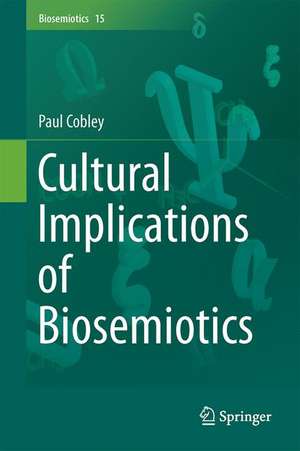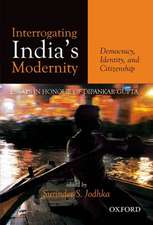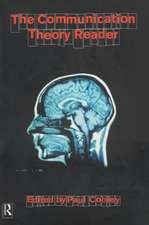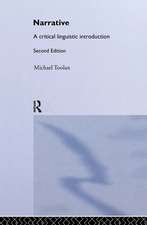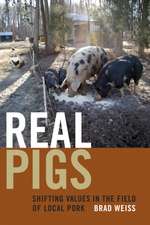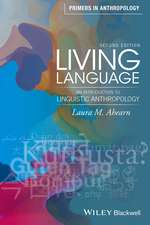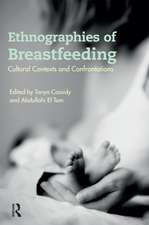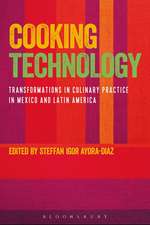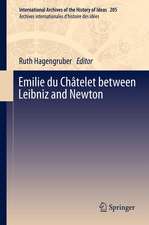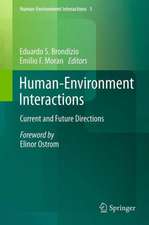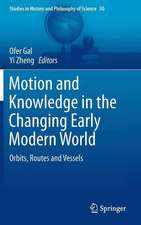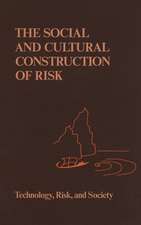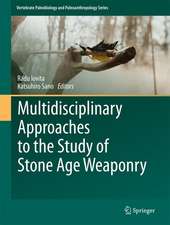Cultural Implications of Biosemiotics: Biosemiotics, cartea 15
Autor Paul Cobleyen Limba Engleză Hardback – 19 aug 2016
| Toate formatele și edițiile | Preț | Express |
|---|---|---|
| Paperback (1) | 633.53 lei 3-5 săpt. | |
| SPRINGER NETHERLANDS – 15 iun 2018 | 633.53 lei 3-5 săpt. | |
| Hardback (1) | 640.55 lei 6-8 săpt. | |
| SPRINGER NETHERLANDS – 19 aug 2016 | 640.55 lei 6-8 săpt. |
Din seria Biosemiotics
- 18%
 Preț: 948.92 lei
Preț: 948.92 lei - 18%
 Preț: 783.20 lei
Preț: 783.20 lei - 15%
 Preț: 644.30 lei
Preț: 644.30 lei - 15%
 Preț: 583.61 lei
Preț: 583.61 lei - 18%
 Preț: 1559.94 lei
Preț: 1559.94 lei - 15%
 Preț: 647.08 lei
Preț: 647.08 lei - 24%
 Preț: 784.02 lei
Preț: 784.02 lei - 24%
 Preț: 777.07 lei
Preț: 777.07 lei - 18%
 Preț: 1660.18 lei
Preț: 1660.18 lei - 18%
 Preț: 1103.93 lei
Preț: 1103.93 lei - 15%
 Preț: 653.98 lei
Preț: 653.98 lei - 18%
 Preț: 722.43 lei
Preț: 722.43 lei - 18%
 Preț: 1004.48 lei
Preț: 1004.48 lei - 18%
 Preț: 780.82 lei
Preț: 780.82 lei - 24%
 Preț: 643.53 lei
Preț: 643.53 lei - 18%
 Preț: 734.90 lei
Preț: 734.90 lei - 18%
 Preț: 794.07 lei
Preț: 794.07 lei - 18%
 Preț: 733.15 lei
Preț: 733.15 lei - 15%
 Preț: 638.39 lei
Preț: 638.39 lei - 18%
 Preț: 1845.44 lei
Preț: 1845.44 lei - 18%
 Preț: 941.38 lei
Preț: 941.38 lei - 18%
 Preț: 947.85 lei
Preț: 947.85 lei - 18%
 Preț: 1217.27 lei
Preț: 1217.27 lei - 18%
 Preț: 1661.13 lei
Preț: 1661.13 lei - 18%
 Preț: 1217.86 lei
Preț: 1217.86 lei - 18%
 Preț: 894.46 lei
Preț: 894.46 lei
Preț: 640.55 lei
Preț vechi: 753.60 lei
-15% Nou
Puncte Express: 961
Preț estimativ în valută:
122.57€ • 128.43$ • 101.33£
122.57€ • 128.43$ • 101.33£
Carte tipărită la comandă
Livrare economică 12-26 aprilie
Preluare comenzi: 021 569.72.76
Specificații
ISBN-13: 9789402408577
ISBN-10: 9402408576
Pagini: 163
Ilustrații: XV, 139 p. 3 illus.
Dimensiuni: 155 x 235 x 11 mm
Greutate: 0.42 kg
Ediția:1st ed. 2016
Editura: SPRINGER NETHERLANDS
Colecția Springer
Seria Biosemiotics
Locul publicării:Dordrecht, Netherlands
ISBN-10: 9402408576
Pagini: 163
Ilustrații: XV, 139 p. 3 illus.
Dimensiuni: 155 x 235 x 11 mm
Greutate: 0.42 kg
Ediția:1st ed. 2016
Editura: SPRINGER NETHERLANDS
Colecția Springer
Seria Biosemiotics
Locul publicării:Dordrecht, Netherlands
Cuprins
1.The age of biosemiotics.- 2. Semiotics and biosemiotics.- 3.- Difference in kind or difference of degree.- 4. The natural subject.- 5. Ethics cannot be voluntary.- 6. Codes and interpretation in nature and culture.- 7. Freedom, repression and constraints.- 8. Humanities are natural.- Conclusion.
Textul de pe ultima copertă
This is the first book to consider the major implications for culture of the new science of biosemiotics. The volume is mainly aimed at an audience outside biosemiotics and semiotics, in the humanities and social sciences principally, who will welcome elucidation of the possible benefits to their subject area from a relatively new field. The book is therefore devoted to illuminating the extent to which biosemiotics constitutes an ‘epistemological break’ with ‘modern’ modes of conceptualizing culture. It shows biosemiotics to be a significant departure from those modes of thought that neglect to acknowledge continuity across nature, modes which install culture and the vicissitudes of the polis at the centre of their deliberations. The volume exposes the untenability of the ‘culture/nature’ division, presenting a challenge to the many approaches that can only produce an understanding of culture as a realm autonomous and divorced from nature.
Caracteristici
The first book-length study of the implications for culture of biosemiotics Provides digestible summaries of the work of key thinkers in biosemiotics, including Deacon, Hoffmeyer, Kull and Sebeok Includes chapters on key topics in culture, including ethics, subjectivity, human exceptionalism, the humanities, repression and semiotics
